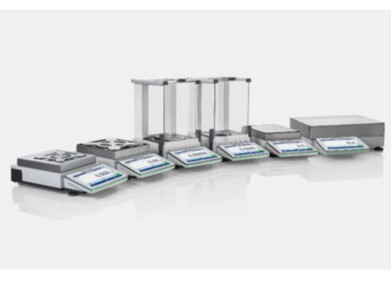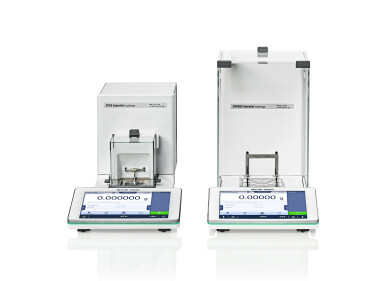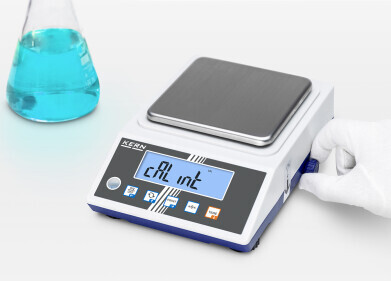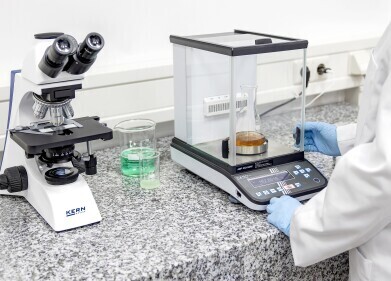Balances
Is Your Weighing Compliant with European Pharmacopoeia 2.1.7?
Sep 03 2021
The recently published European Pharmacopoeia General Chapter 2.1.7 'Balances for Analytical Purposes' becomes mandatory from 1 January 2022. It defines specific requirements to ensure the quality of weighing measurements. A new Certificate Ph. Eur. 2.1.7 is available to provide physical evidence of compliance with these requirements for audit purposes.
European Pharmacopoeia (Ph. Eur.) Chapter 2.1.7 'Balances for Analytical Purposes' is concerned with lifecycle management of balances used for test procedures according to Ph. Eur. monographs. It states that calibration of balances is mandatory at regular intervals. The calibration should be documented, along with the measurement uncertainty, in a calibration certificate. Calibration is typically carried out by a qualified service technician, and the Accuracy Calibration Certificate (ACC) from Mettler-Toledo meets the requirements of including a measurement uncertainty statement in the certificate.
The new chapter also defines regular performance checks to assess the repeatability and accuracy of the balance between calibration intervals. These checks, also known as routine tests, are typically carried out by the balance operator. In addition, adjustment of the balance using built-in weights is accepted practice. In combination, these measures are intended to control the accuracy of weighing within an analytical process.
Accuracy Calibration Certificate (ACC) and Certificate Ph. Eur. 2.1.7
The new Certificate Ph. Eur. 2.1.7, offered by Mettler-Toledo, documents the assessment of the balance against the stipulated routine tests and includes a compliance statement concerning the acceptance criteria of 0.10%. In combination with the Accuracy Calibration Certificate (ACC), which quantifies the performance (measurement uncertainty) of your balance over its entire weighing range, this Certificate Ph. Eur. 2.1.7 provides physical evidence of compliance with the requirements, which can be demonstrated at audit.
How often should calibration or performance checks be carried out?
A more challenging topic, which is not specified in either Ph. Eur. 2.1.7 or the equivalent United States Pharmacopeia (USP) chapters 41 and 1251, is how often should the calibration and performance checks be carried out?
Actually, it depends on the risk and criticality of the application. Although this may be difficult to interpret, the good news is that GWP® (Good Weighing Practice) - the scientific standard for the life-cycle management of weighing instruments from Mettler-Toledo - is in direct alignment with the balance chapters of USP 41 and Ph. Eur. 2.1.7. This means that GWP® can easily support you to implement the new weighing requirements, including calibration and routine testing (performance checks) and lifecycle management.
In particular, GWP® Verification can define the appropriate intervals for calibration and performance checks based on your own quality considerations and the risk of specific applications. It provides you with a calibration and routine testing plan, with additional guidance on routine testing methods, frequency and test weights and tolerances that are required.
With GWP® Verification, Accuracy Calibration Certificate (ACC) and Certificates Ph. Eur. 2.1.7 or USP 41, you have the complete package of documentation to demonstrate compliant weighing procedures within the framework of a quality management system.
Read the white paper ‘Weighing According to Ph. Eur.’ for more detailed information about what is required by the new Chapter 2.1.7 'Balances for Analytical Purposes'.
More Information online
Digital Edition
Lab Asia 31.6 Dec 2024
December 2024
Chromatography Articles - Sustainable chromatography: Embracing software for greener methods Mass Spectrometry & Spectroscopy Articles - Solving industry challenges for phosphorus containi...
View all digital editions
Events
Jan 22 2025 Tokyo, Japan
Jan 22 2025 Birmingham, UK
Jan 25 2025 San Diego, CA, USA
Jan 27 2025 Dubai, UAE
Jan 29 2025 Tokyo, Japan





















